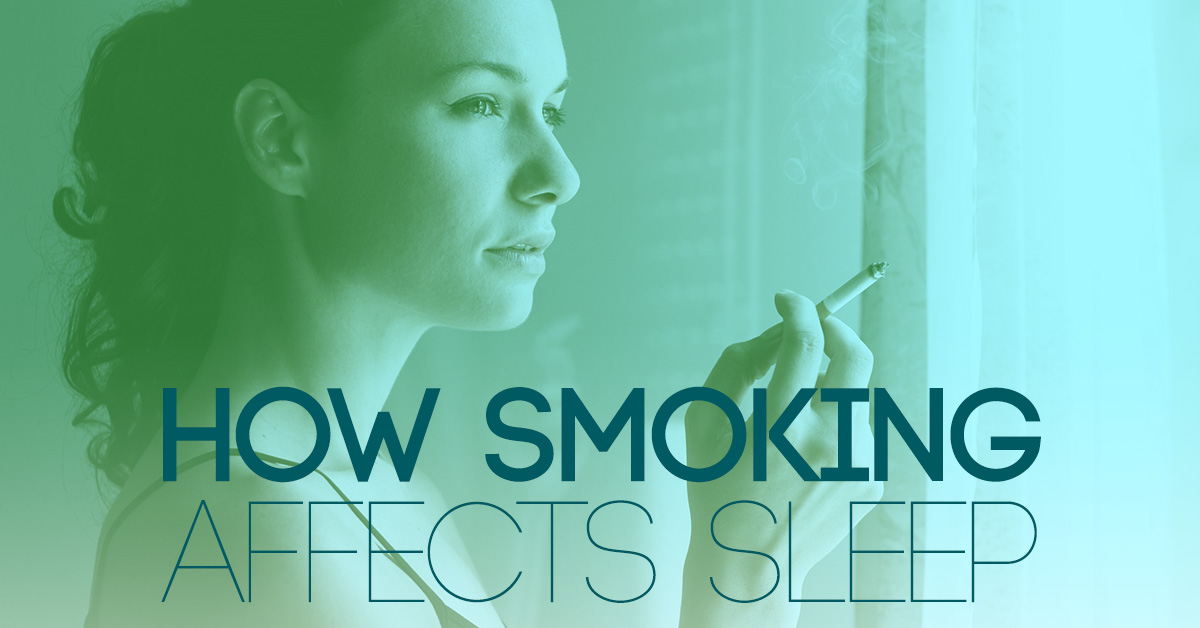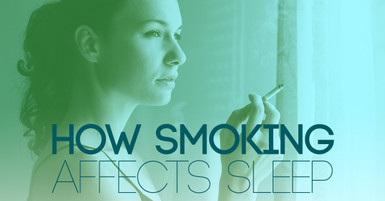Dec 28th 2016
How Smoking Affects Sleep

Did you know that smoking has an impact on how well and how much you sleep?
Have you made your 2017 New Year’s resolution yet? If you smoke, then there’s no better resolution than to quit smoking. We all know that smoking cigarettes contributes to a long list of health issues, including lung cancer, but did you know that it can also rob you of healthy sleep? The following is a list of the ways that smoking cigarettes affects your sleep:
#1. It increase your risk of developing obstructive sleep apnea.
People who smoke are two and a half times more likely to develop the most common type of sleep apnea, which is obstructive sleep apnea, than those who don’t smoke. This is because inhaling cigarette smoke irritates the tissues in the throat and nose, leading to swelling that restricts the airflow.
#2. It alters your natural circadian rhythm.
Your circadian rhythm, also known as your natural biological clock, regulates the timing of the periods you feel sleepy or awake throughout the day. Researchers from the University of Rochester Medical Center found that, when you smoke tobacco, it leads to a substantial disruption of your circadian clock. Not only do these disruptions lead to poor sleep, they also lead to anxiety, depression and other mood disorders.
#3. It makes it difficult to fall asleep.
Like caffeine, nicotine is a stimulant, and if you consume too much of it too close to your bedtime, it can make it difficult to fall asleep. A study conducted by the University of Florida found that, on average, for every cigarette you smoke, you lose a little over a minute of sleep.
#4. It causes you to wake up more frequently at night.
In a study conducted by scientists at Johns Hopkins University, it was found that people who smoke are more likely to experience light sleep, while people who don’t are more likely to experience deep, restorative sleep. In the study, over 20 percent of smokers said the experienced restless sleep, while only five percent of nonsmokers experienced restless sleep.
#5. It puts you at a higher risk for insomnia.
Obstructive sleep apnea isn’t the only sleep disorder that smoking can cause; it can also cause insomnia. Since nicotine is a powerful stimulant, people who smoke cigarettes have an increased risk of developing insomnia. One study found that older women who smoke have an even higher risk of developing insomnia.
There are so many things that can disrupt the quality and quantity of your sleep, but whether you smoke or not is completely up to you. Quitting can certainly help reverse the effects of smoking on your sleep, but people who have never smoked will always be the soundest sleepers. If you have developed sleep apnea as a result of smoking or anything else, turn to CPAP Liquidators to get the used BIPAP and CPAP equipment you need. In addition to getting sleep apnea therapy, it’s also important to quit smoking to improve your sleep apnea. In our next blog, we’ll be going over common methods for quitting, so please stay tuned.

